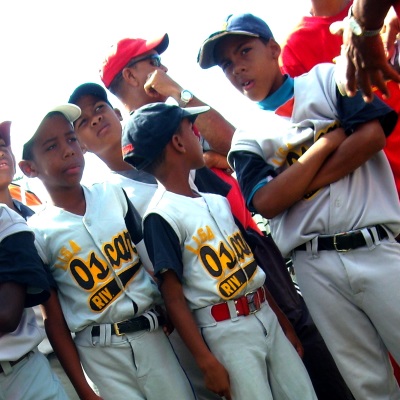 I recently had the opportunity to counsel with a tearful mother whose son was the victim of bullying. The problems did not rise to the level of physical conflict but her 10-year-old son, we’ll call him “Aaron,†was suffering from continuous and demoralizing taunting from his baseball teammates. Aaron is smaller than most of his peers and decidedly less athletic than many of the boys on his competitive baseball team.
I recently had the opportunity to counsel with a tearful mother whose son was the victim of bullying. The problems did not rise to the level of physical conflict but her 10-year-old son, we’ll call him “Aaron,†was suffering from continuous and demoralizing taunting from his baseball teammates. Aaron is smaller than most of his peers and decidedly less athletic than many of the boys on his competitive baseball team.
The mom was distraught over the taunting Aaron had received for his comparative lack of athleticism. Although he can’t hit or throw or run very well, Aaron loves baseball and – until this season – enjoyed the experience of playing on a team. Now he dreads going to games and would rather not play than endure any further derogatory comments from his teammates.
She had many questions. Should she talk to the coach? The team mom? The parents of the main tormentors? The president of the league? Should she force Aaron to continue with the team or should she allow him to quit if he wants to do so? Should she pull him from the team regardless? From the league? From baseball altogether?
Aaron’s mom was paralyzed by indecision. The one thing she knew was that the situation could not continue on as it was. But by her inability to act she was effectively taking the only course of action that she knew to be wrong. There are times when doing nothing can be worse than anything else you might do.
If you find yourself in a similar situation, here are a few things for you to keep in mind. First, you cannot control everything and everyone in the world around your child. There are situations that you just can’t fix. Take a little time to evaluate your current situation and decided whether or not the teasing reaches the level of bullying. If it does, is this a systemic problem? Is the coach aware but unconcerned? The answers to these questions will determine your next steps. Either the problem can be addressed or it can’t. If it is fixable, fix it. If not, remove your child from that environment immediately.
Don’t worry about “letting the team down†or teaching your child to stick with their commitments if the situation is truly in the “unfixable†category. Just be careful to evaluate the system thoroughly. Do not fall into the trap of making a knee-jerk reaction to pull up stakes and leave. If you make that determination lightly now, you will probably find yourself there again and again until you fall into the pattern of a victim and the only lessons your child will learn is how to cast blame and play the victim.
If there is hope of resolving the problem then seize it. Talk to the coach. Talk to the league president. Talk to anyone who will listen. Get involved. The best way to change a culture is from within. If you can be the team mom or assistant coach you can affect the whole dynamic of the situation. Involvement is your greatest weapon.










